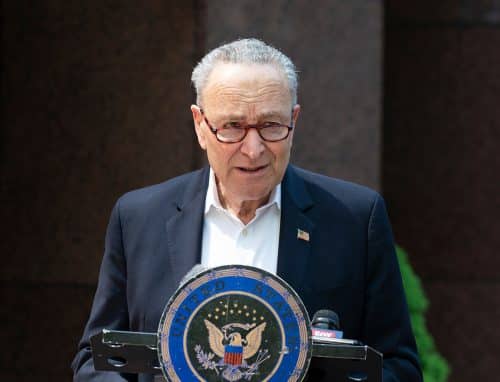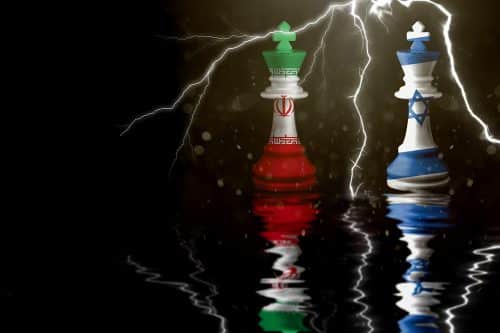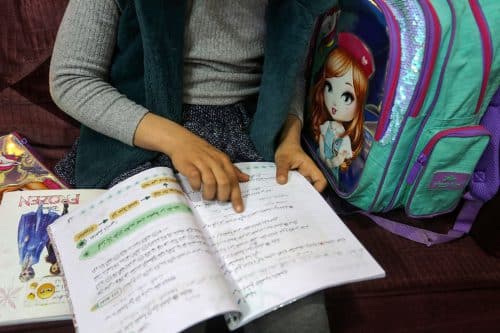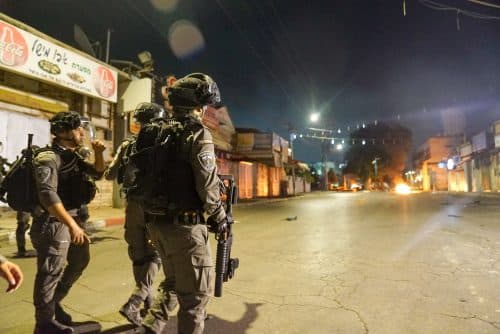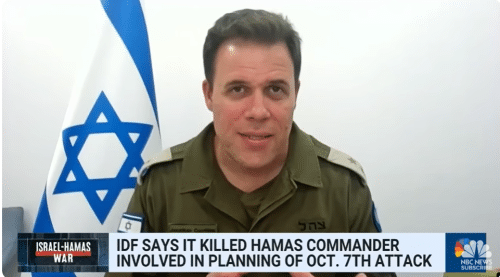“Despite the security situation, the conference will take place as planned.” Hundreds of people who had registered for Israel’s First Security Conference received this message the morning the program was scheduled to begin. The reason behind the message: The night before, the State of Israel had launched Operation Shield and Arrow, and Israel’s home front switched to its all-too familiar status of high alert. It turned out that these individuals for whom Israel’s security is important, do not shy away from another round of fighting, and the conference hall was fully packed, and rightly so. This space, where the elite of Israel’s political and security establishment gathered, naturally became the center of the day’s media attention, and where the main headlines were formed.
Not Just Defense Techniques: National Vision and the Righteous Path
Israel’s First Security Conference was initiated by the Israel Defense and Security Forum (IDSF-Habithonistim Movement), and was held in collaboration with Israel Hayom, whose reporters interviewed the senior officials participating in the conference, including Israel’s Prime Minister, the Minister of National Security, the Minister of Economy and Industry, as well as other members of Knesset and senior defense establishment officials.
The conference was fully booked within hours of opening the registration, and the individuals who attended the conference reflect a wide spectrum of Israeli society: Young and old, men and women, former defense establishment officials, policymakers, as well as ordinary citizens. All of the participants engaged in conversations that revolved around one main question: How can we ensure Israel’s security for generations to come?
This is the exact question that Brig. Gen. (Res.) Amir Avivi, the founder and chairman of IDSF-Habithonistim, asks in his new book, We Will Not Turn Back, which was launched at the conference. “The uniqueness of IDSF-Habithonistim is understanding that national security is first and foremost a national ethos, knowing what our mission is and why we are here – because it is the spirit that will triumph. National security is first and foremost a national vision, a spirit and a belief in the righteousness of the path we’ve chosen. We are not concerned purely with security details,” Avivi remarked in his opening address at the conference.
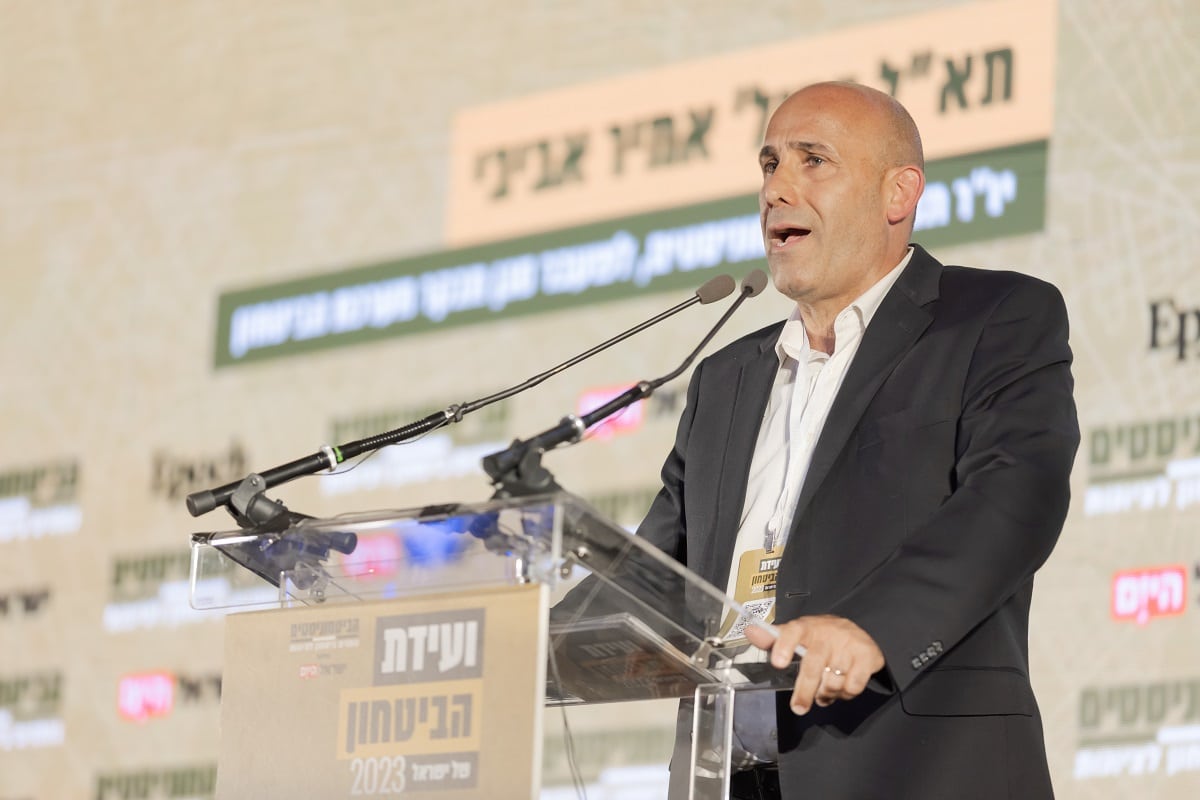
On the day of the conference, the importance of having a national vision took on a new significance due to the launching of Operation Shield and Arrow. “Against the backdrop of the military operation that the IDF embarked on last night, we all feel that this is not just another round of fighting. The threats interpreted as the same old threats have reached a new level of maturity, a stage of maturity that is the meeting point between vectors that we in the IDSF have been dealing with for over a year now: The Iranian vector, the Palestinian vector, the intra-Israeli vector and the delegitimization vector. We will speak about all of these here today.”
Iran: The Attack on the Snake’s Head, Not on the Octopus’s Arms
The first panel, which took place after the opening remarks given by Major General (Res.) Gershon Hacohen, dealt with the first vector – the Iranian campaign. The first speaker on the panel, which was moderated by Amir Ivgi, was Brig. Gen. (res.) Yossi Kuperwasser, the Director of Research at IDSF. Kuperwasser spoke about the Iranian connection to Operation Shield and Arrow, saying, “We need to understand – Palestinian Islamic Jihad is an organization that is subordinate to Iran. Its headquarters, which is located in Syria, is in regular contact with Iran. On paper, the attack was carried out by the State of Israel against the Islamic Jihad terrorist organization, but it was also indirectly an action against Iran.”
Brigadier General (Res.) Hasson Hasson, a member of IDSF’s Advisory Board, presented a clear position regarding the connection between the Gaza Strip and Iran: “Iran does not care one iota if we attack Gaza. To truly cause harm to Iran, we would need to attack Tehran – the snake’s head, not its arms in Gaza.”
Ariel Kahana, Israel Hayom’s senior political commentator, added that the military operation in Gaza was an IDF initiative, as opposed to previous operations, which the State of Israel had been dragged into. “This is a message for the entire region,” Kahana said. “Recently, our enemies have been under the impression that against the backdrop of the processes and disputes taking place among the Israeli public, we have become weak and vulnerable. Thus, this operation is our way of saying, ‘Guys, you are mistaken’.”
The conclusions of the panel on the Iran issue correspond with the strategic assessment submitted by the IDSF Research Department to the Prime Minister and Defense Minister a number of months ago, the bottom line of which is the following: The State of Israel is operating a multi-arena campaign, the head of which is in Iran, and whose arms reach all the way to us.
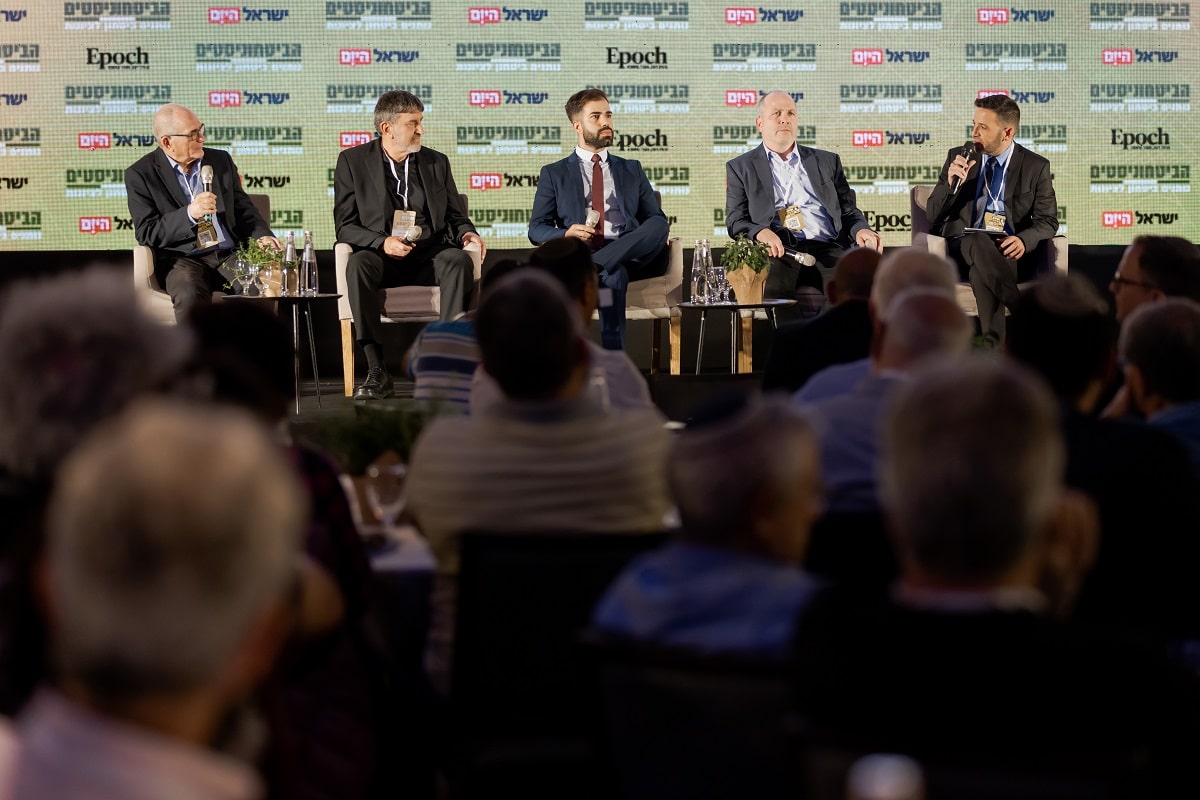
The National Guard: Is this Just the First Step?
After the Iran Panel participants went offstage, National Security Minister Itamar Ben Gvir, who was interviewed by Itsik Saban, Israel Hayom’s police and crime correspondent, took the stage. The interview focused on the topic of Governance and the National Security Situation. According to an IDSF Index survey carried out a few months ago, public support in Israel for the creation of a national guard is high. IDSF has been following this topic from the moment the previous government was formed, and has already assisted in the recruitment of its first 1,500 volunteers.
Minister Ben Gvir spoke about various aspects pertaining to national guard activities, and noted that its mission is broad: “The national guard will deal with nationalistic crime, protection rackets in southern Israel and crime families. It will also patrol areas such as Lod, Ramle, the Negev and the Galilee. Since taking up my new position, I have learned that there is great shortage of policemen. For this reason, and after consultation with senior officials, some of whom are here in the audience today, I am convinced that we urgently need a national guard. Hence, I immediately got to work.”
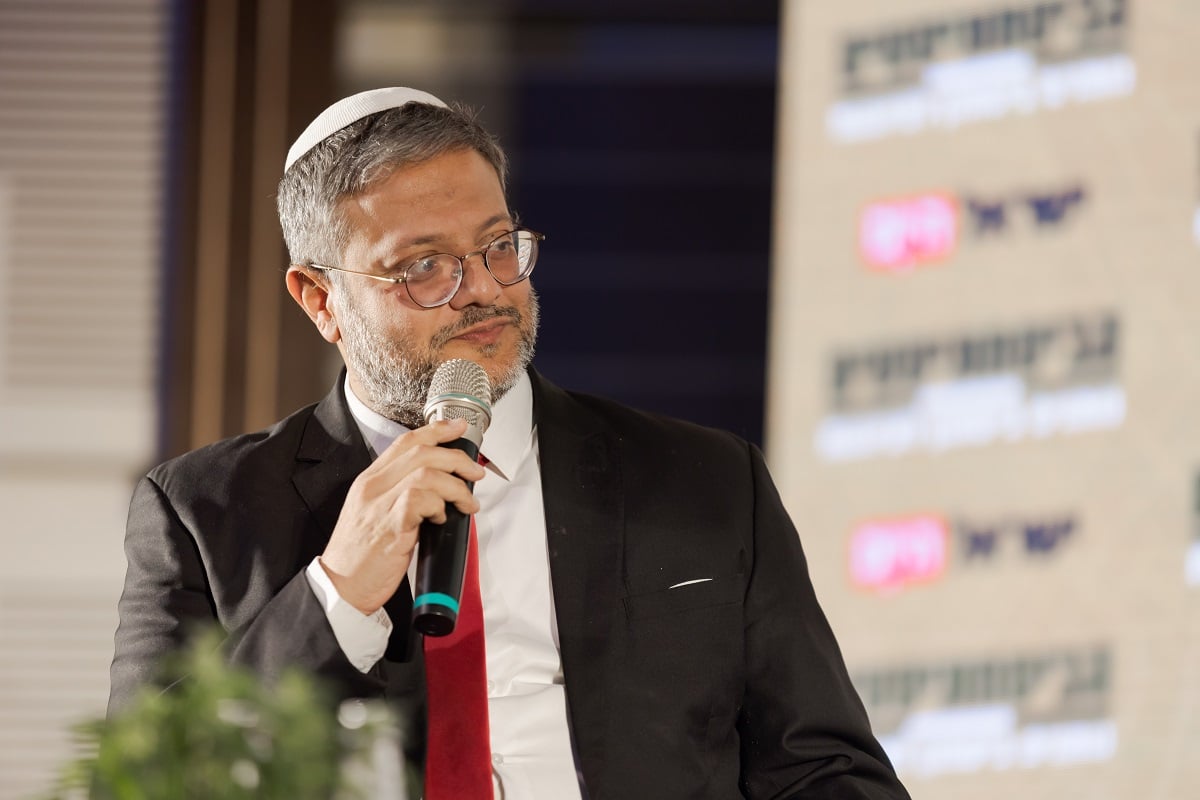
The topic of creating a national guard was also referenced in the panel on the internal Israel vector. One of the panel participants, Superintendent (retired) Aaron Exol, explained that it is not good enough to just create a national guard. “The role of a national guard is to enhance governance and personal security, following the understanding that the police cannot be everywhere at all times. It is important to remember, however, that constructing a national guard is only the first step. We also need to know what to do with people who are arrested, because due to the revolving door phenomenon, this will not have much of an impact. The people breaking the law will simply return to the streets, and we will have failed to create any deterrence.”
Another interesting insightful understanding raised by Exol touches on the root causes of the lack of governance phenomenon, which according to him begins already at the level of parking spots in private homes. “We need to understand something about governance – it’s not just about convicting criminals. It’s also about painting curbsides blue and white in Tuba-Zangariyye or installing a stop sign in Rahat. This brings me back to the national guard topic – without having massive presence on the ground and ongoing day-to-day friction with these populations, we cannot speak about governance.”
The Convergence of the Vectors: The Multi-Arena Campaign is Imminent
Last month, the Israeli Military Intelligence’s Research Division issued an unusual warning to heads of Israel’s defense establishment and political leaders: The strategic situation of the State of Israel has worsened in recent months.
MK Gadi Eisenkot, a former IDF Chief of Staff, addressed this unusual warning in a one-on-one interview with Amir Ivgi. “Israeli Military Intelligence’s warning is an unprecedented event. There are quite a few intelligence officers sitting here – let me ask you all: When was the last time such an announcement was made? This warning indicates that a disturbing change is taking place among our enemies, which is connected to the convergence of arenas and threats: Islamic Jihad in the Gaza Strip, terrorist organizations in Jenin, Nasrallah in Lebanon and of course, Iran. We must restore a higher level of deterrence. You’ve got to understand – building up deterrence doesn’t happen in one day. Building up deterrence is a long and complex process.”
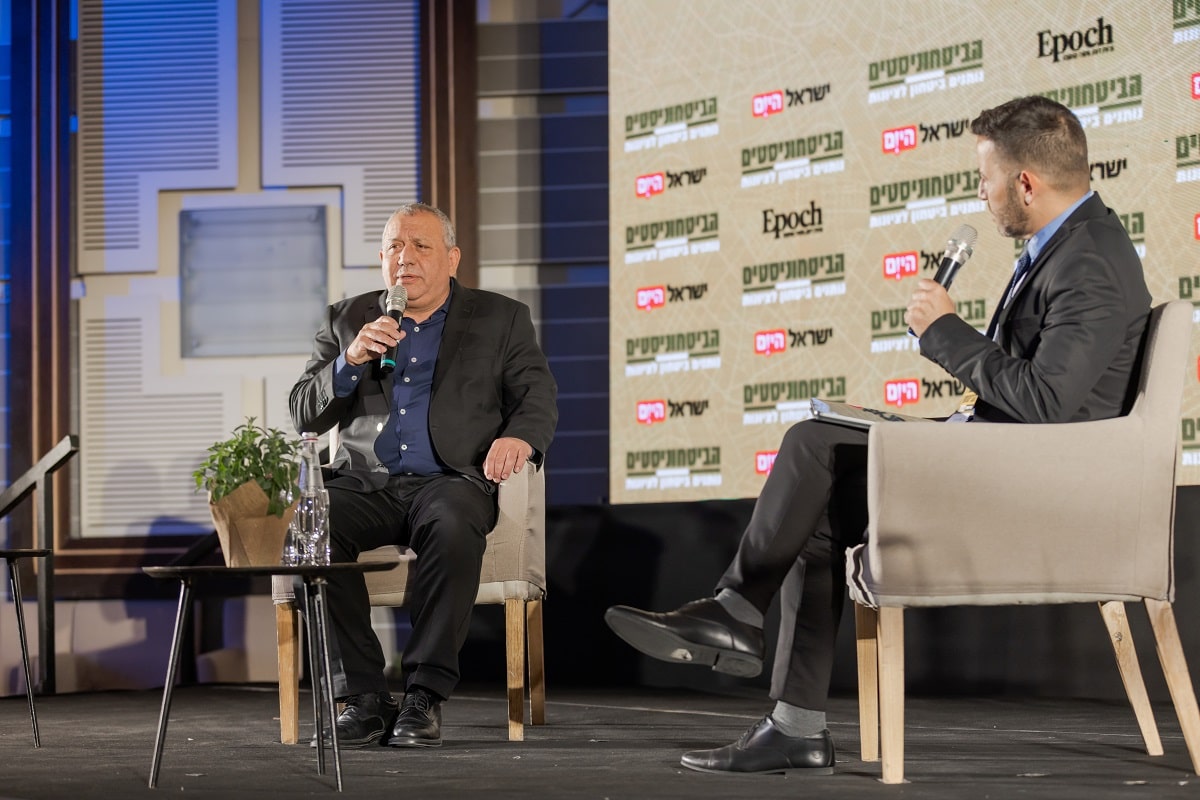
The next speaker was Minister of Economy and Industry Nir Barkat, who commented on the convergence of the arenas as well: “The Iranians are leading a multi-arena campaign. We must make it clear to the Iranians that they cannot hide behind their proxy. We will not allow them to get away with this. I have been in consultation with IDSF members regarding a number of issues, and let me tell you: The best defense is an offensive attack, and we must continue with this policy.”
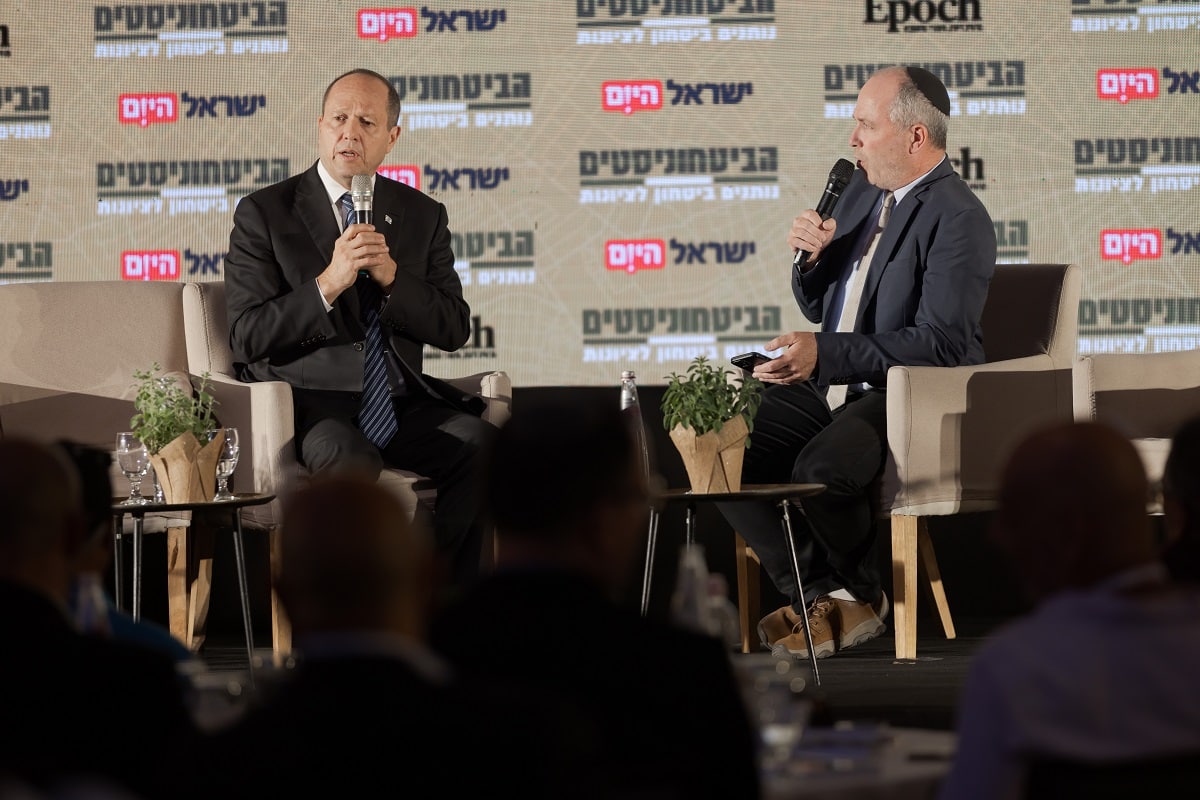
The Faraway Campaign, the Nearby Campaign
The winds of delegitimization that are blowing around the world are nothing new, but they do seem to be gaining momentum in recent years. Thus, for example, just recently US Congresswomen Rashida Tlaib has initiated an event that was planned to be held in Congress surrounding the Palestinian Nakba – Arabic for “catastrophe” – with the participation of anti-Israel organizations. At the last moment, the event was cancelled, but this does not erase the spirit surrounding it.
“The truth is, I am surprised that we are surprised by the Nakba event at the Capitol,” said Yoseph Haddad, an Israeli Arab advocacy activist who is CEO of Together Vouch For Each Other, during the panel that dealt with the threat of delegitimization against the State of Israel. “After all, Israeli members of Knesset held a Nakba event inside the Knesset. Moreover, these very same MKs encourage boycotting the State of Israel from within the borders of the very same democracy they represent! So, how can I complain that the US is planning to hold a Nakba event at the Capitol, when these same events and worse are taking place here?
“Anyone who thinks that BDS threats are idle threats is wrong,” continues Haddad. “I travel around the world quite a lot. I see how the BDS Movement succeeds in convincing students on college campuses with their lies. It’s no coincidence that BDS invests its energy and resources on college campuses. After all, in just a few years, these very same students will be serving in key positions. The absurdity is that the State of Israel is not addressing this problem, even though it is one of the scariest threats to our country.”
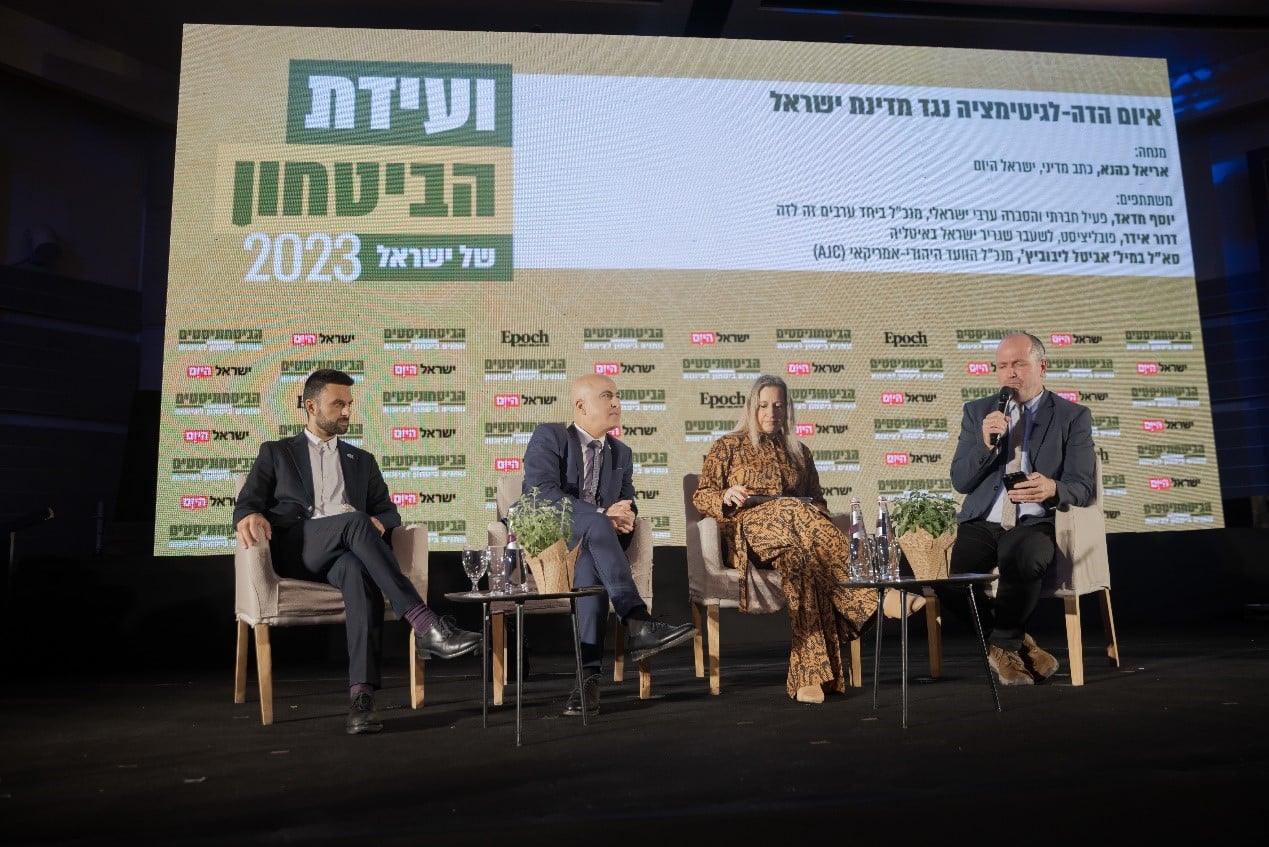
Alongside the campaign that is taking place on college campuses, an equally threatening campaign is taking place here in Israel. It’s no secret that Hamas and other hostile elements are gaining strength throughout Judea and Samaria, and are carrying out terrorist attacks against Jewish residents and security forces. The last session of the Security Conference dealt with the Palestinian Authority in general, and in particular as to what might happen the day after Palestinian President Mahmoud Abbas (“Abu Mazen”) leaves office: How should we handle the situation that has been created in Judea and Samaria?
“We must be the ones to shape reality, and not let reality shape us,” states Lieutenant Colonel (res.) Yaron Buskila, Director of Operations at IDSF. “This means, first of all, that we need to use military means: Whoever threatens a citizen of the State of Israel should be harmed. In parallel, legal measures can be taken. Unfortunately, 500 stone-throwing incidents a month take place on average in Judea and Samaria, and 86% of stone throwers are never arrested. The other 14% are held in prison for only up to one month. And finally, economic sanctions can be imposed on the Palestinian Authority – we must not create a situation that is financially rewarding for terrorists.”
A Free People in Our Land: To Protect Ourselves, On Our Own
It is said that the most difficult job in the State of Israel is that of prime minister. This statement is even more valid when that country embarks on a military campaign against its enemies. Nonetheless, it was important for the Prime Minister of Israel, Mr. Benjamin Netanyahu, to join on a live video call to Israel’s First Security Conference. Between situation assessments and media announcements, the Prime Minister congratulated the IDSF, and spoke about the importance of holding the first conference of its kind in Israel: “I want to thank you, members of the IDSF-Habithonistim Movement, for your firm stance in support of Israel’s security. You don’t bend with the wind, and that is extremely important. The hard truth is that the life of a country, of nations and societies is a continuous competition – there’s no situation in which a country can rest on its laurels. This is especially true in our beloved country. We must be capable of protecting ourselves on our own – no one else is going to protect us if we don’t protect ourselves.”
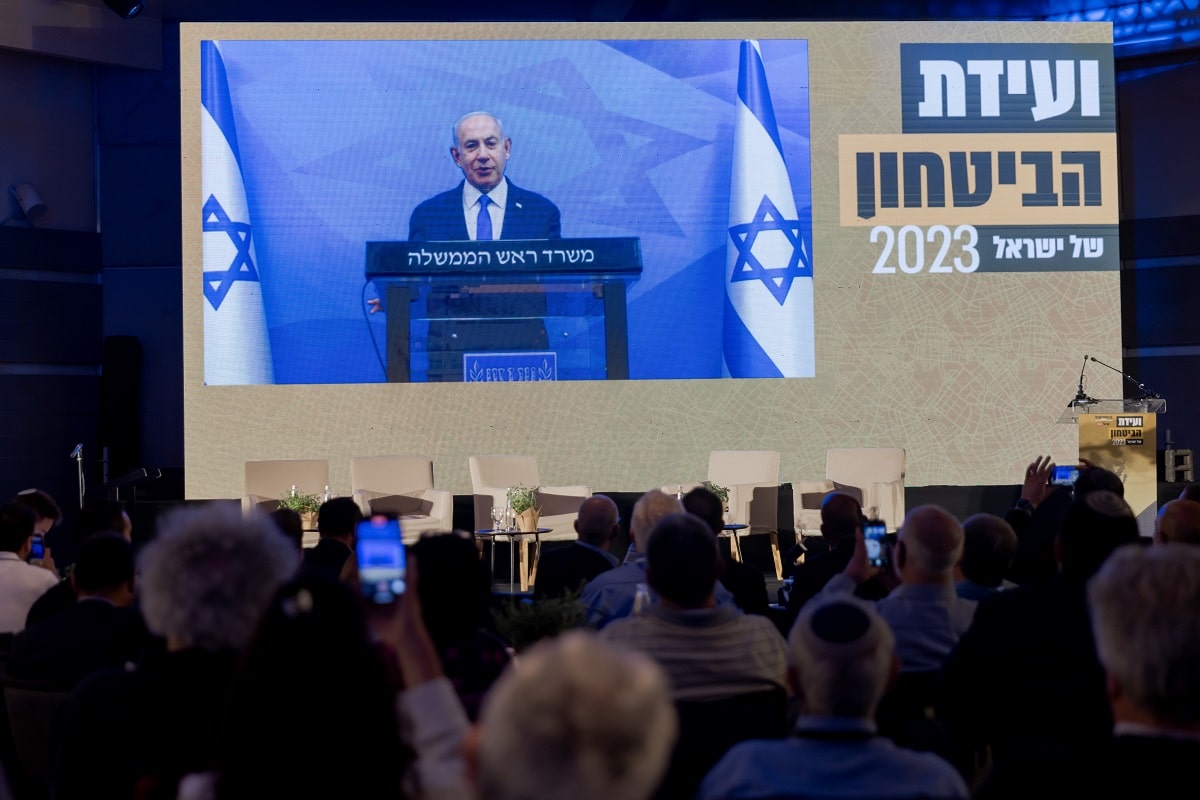
As the conference came to a close, the participants stood to sing Israel’s national anthem, which ended with a round of applause. “The Security Conference proves that there is a strong and clear voice brought forth by the IDSF-Habithonistim Movement, a voice that says in an unapologetic and uncompromising way that the Land of Israel is the national home of the Jewish People, and that we must do everything to ensure that this situation will last forever. The IDSF-Habithonistim Movement will continue to make its voice heard and assist policymakers in maintaining Israel’s security for generations to come.” And with these words, Brig. Gen. (Res.) Amir Avivi brought the conference to a close, with a promise: “We will meet again at the next conference, at the same time next year.”
To purchase Avivi’s book, We Will Not Turn Back: How Will We Ensure Israel’s Security for Generations? https://www.idsf.shop/we-will-not-go-back
